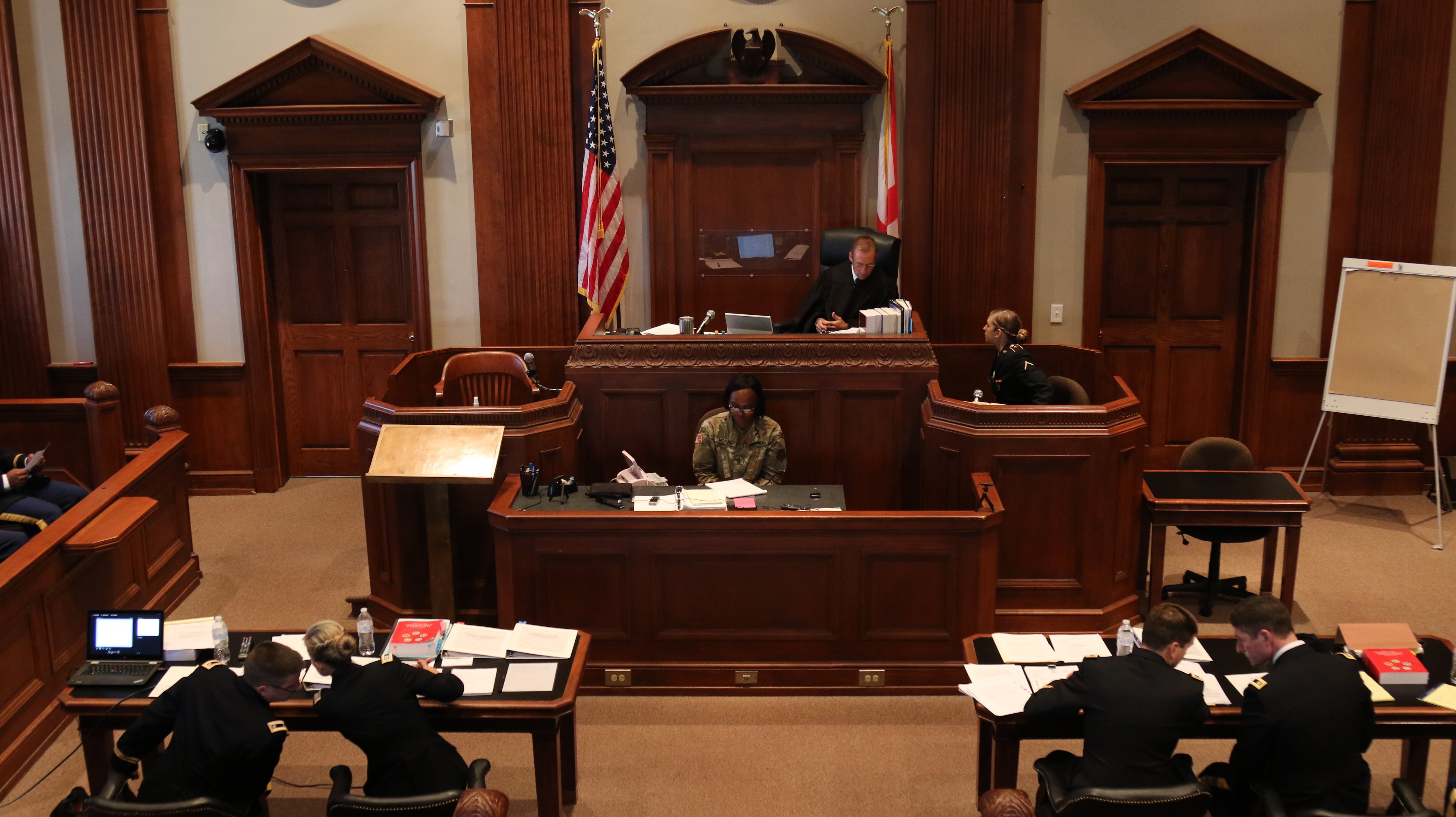As recently as a month ago, major legislative reforms to how the military handles sexual misconduct cases appeared inevitable. Now advocates are worried they may be abandoned entirely.
On Tuesday, a group of 66 House and Senate lawmakers implored congressional leaders to keep the military justice changes in the annual defense authorization bill, amid rising rumors that key congressional leaders are planning to dump the provisions in order to speed up final passage of the defense measure.
“It is outrageous that the Senate and House Armed Services Committees would even consider stripping out a provision that is backed by a bipartisan majority in both chambers and has been included in the Senate version of the bill,” their letter stated.
“Sexual assault in the military is a serious concern and demands a real solution, not a watered-down provision slipped in the final bill behind closed doors.”
RELATED

The move comes a week after a coalition of veterans groups made similar demands of congressional negotiators working on the authorization bill. The new push is led by Sen. Kirsten Gillibrand, D-N.Y., who has been the driving force behind many of the changes for years and has sparred with both Democratic and Republican leaders over their resistance to the idea.
She said her proposal — known as the Military Justice Improvement and Increasing Prevention Act — is “the only reform that will provide true independence for prosecutors in the military justice system.”
Pentagon leaders earlier this year reversed their opposition to changes in how military sexual misconduct cases are handled, backing plans to remove those cases from the traditional chain of command and instead have them go through independent prosecutors specially trained in the intricacies of those crimes.
That language was included in the House’s version of the defense authorization bill in September.
Gillibrand’s legislation goes further, removing all serious crimes from the military chain of command and creating an even broader corps of independent military prosecutors. Her proposal was included in the defense bill draft passed by the Senate Armed Services Committee in August.
But that draft has been stalled in the Senate ever since.
Earlier this week, Republican lawmakers blocked a bid by Democratic Senate leaders to speed up consideration of the bill, insisting on more time for outside amendments to be considered. Their response to Democratic criticism has been to attack Senate Majority Leader Chuck Schumer, D-N.Y., for waiting months to bring the measure to the floor, rather than prioritizing the military measure.
Given that Congress has just a few weeks left before the end of the year, many lawmakers are beginning to wonder if they have time left to pass not only the military justice reforms but any of the annual defense budget policy bill. Failing to do so would break a 60-year streak of advancing the measure out of Congress and to the president’s desk.
“We’re going to have an [authorization bill],” said Senate Armed Services Committee Chairman Jack Reed, D-R.I, on Tuesday, trying to calm some of those fears. “We’re going to talk to the House and see what we can do.”
In the past, when Reed and other key negotiators have faced tight timelines on finalizing the defense bill, they’ve sped up inter-chamber negotiations by dropping controversial items from the different drafts.
RELATED

Even though some type of military justice reform is included in both the House and Senate versions, reconciling the two conflicting plans may prove more troublesome than simply sidestepping the issue altogether.
Gillibrand and the other senators said that move, while easy, would be a terrible mistake.
“These [sexual misconduct] issues have been plaguing the military for decades, despite countless congressional mandates, $1 billion of funding, and promises from leadership that they would address it,” their letter stated. “Our service members do not have years or decades more to wait for the Defense Department to solve this problem.”
Advocates are hoping for progress on passing the authorization bill out of the Senate in the next few days. Both the House and Senate are scheduled to leave for the year on Dec. 13, but chamber leaders have suggested they plan to stay in town longer due to a variety of unfinished budget and policy measures.
Leo covers Congress, Veterans Affairs and the White House for Military Times. He has covered Washington, D.C. since 2004, focusing on military personnel and veterans policies. His work has earned numerous honors, including a 2009 Polk award, a 2010 National Headliner Award, the IAVA Leadership in Journalism award and the VFW News Media award.




